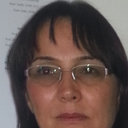Prevalence and risk factors for excessive daytime of sleepiness in rural western Anotolia (Turkey): the role of obesity and metabolic syndrome.
Keywords
Abstract
The purpose of the present study was to identify risk factors for and prevalence of excessive daytime sleepiness and associations between demographic factors, obesity and metabolic syndrome criteria and excessive daytime somnolence (EDS). A descriptive and analytical study was conducted among 508 volunteers in primary health care centers in western Anatolia, Turkey. The data were obtained using a questionnaire and the Epworth Sleepiness Scale. Metabolic syndrome components were defined according to the criteria of the Internetional Diabetes Federation. A logistic regression model was used for statistical analysis. The mean +/- SD age was 46.3 +/- 17.3 years, body mass index was 27.0 +/- 5.4 kg/m2 and Epworth Sleepiness Scale (ESS) score was 5.0 +/- 4.4. The prevalence of EDS was 14.6% (n=74). Older age (OR 1.033; 95% CI 1.03-1.26) and high body mass index (OR 1.143; 95% CI 1.01-1.04) were associated with increased incidence of EDS. In backward logistic regression analysis, non-tea and coffee drinking (OR 6.189; 95% CI 2.10-18.2) were significantly asociated with EDS. According to our study, age, body mass index and non-tea and non-coffee drinking were associated with EDS.


